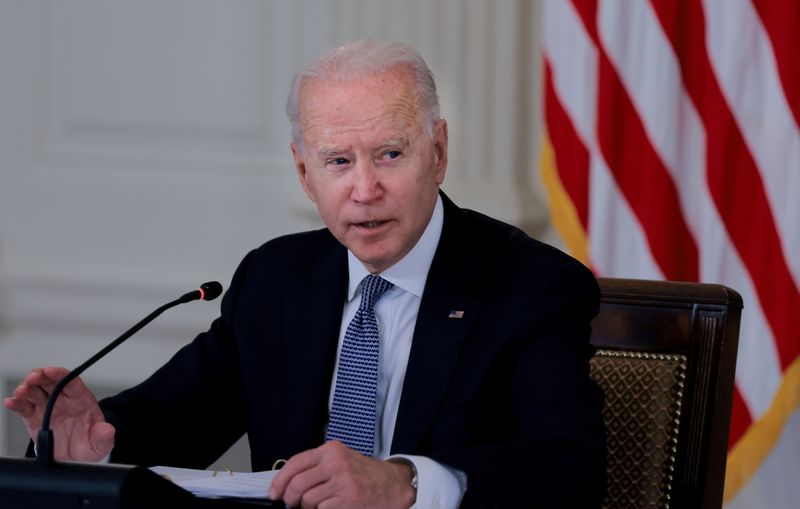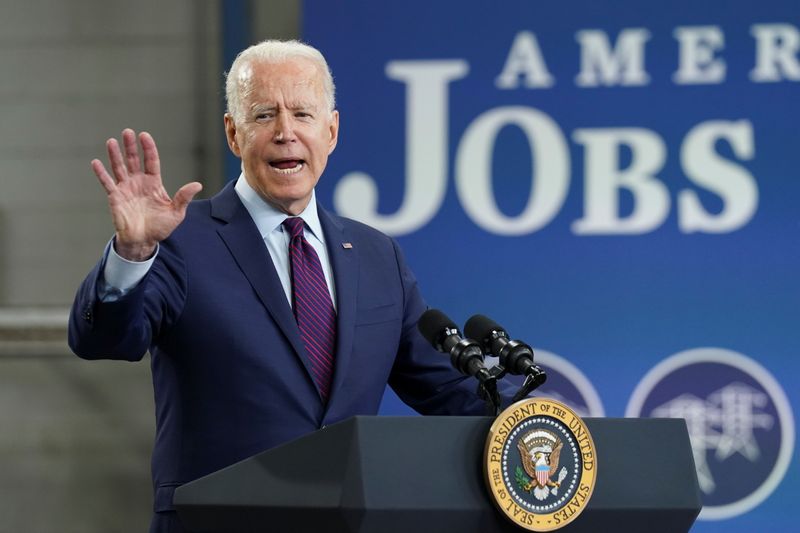By Philip Blenkinsop
BRUSSELS (Reuters) - Governments and local authorities around the world have for decades put domestic companies first in the massive public procurement decisions they make with taxpayer money.
But as they look to spend trillions on post-pandemic recoveries - and as western suspicion of China grows - many are taking an even more protectionist stance to ensure the funds are spent locally to create or protect jobs.
Here are the main developments and some of the implications.
WHAT ARE THE RULES?
The World Trade Organization's 164 members commit to provide trade on the same terms with other partners and treat imported and locally produced goods equally, but are largely left to their own devices on public procurement.
Although some legal challenges have questioned the role of state-owned firms, this means national, regional and local authorities can effectively set their own terms.
SO THESE MARKETS ARE CLOSED?
Not quite. 48 WTO members, mostly developed countries and not including China, are signatories to the Agreement on General Procurement (GPA), hatched in 1994 and revised in 2012.
This provides a partial liberalisation, with its backers filing "coverage schedules" that spell out what levels of government will open up and to what extent.
In the case of the United States, its schedule only covers 37 states, a third of which exclude purchases of construction steel, vehicles and coal, while at the federal level, there are extensive carve-outs of Department of Defense purchases, as well as for aeronautics and mass transit.
Beijing has submitted offers to join, but the current members have not deemed them sufficient to let China in.
HOW BIG IS THE MARKET GLOBALLY?
Public procurement accounts for 15-20% of global gross domestic product and GPA commitments represent around 1.3 trillion euros ($1.54 trillion) in business opportunities, according to European Commission data.
'BUY AMERICAN'?
The United States passed the Buy American Act in 1933, setting a preference for U.S. products in federal procurements, spurring demand for U.S.-made construction materials used in the massive New Deal public works spending.
Buy American provisions have since seeped into state and local procurement laws.
The act was excluded from the GPA, although automatic waivers are supposed to apply for suppliers from GPA partners for procurement covered by the agreement. There are also exemptions, such as if the product is not sufficiently available domestically or the cost unreasonable.
U.S. President Joe Biden, days after entering office, signed an executive order aimed at closing loopholes in provisions, which apply to about a third of the $600 billion in goods and services federal government buys per year.
Biden's order also calls for increases in the minimum U.S. content for manufactured goods bought with taxpayer dollars under "Buy American" laws. Both the European Union and Canada have raised concerns.
WHAT OF CHINA'S POSITION?
Three U.S.-based sources told Reuters that Beijing quietly issued new procurement guidelines in May that require up to 100% local content on hundreds of items including X-ray machines and magnetic resonance imaging equipment.
So-called Document 551 was issued to state buyers by the Chinese Ministry of Finance and the Ministry of Industry and Information Technology (MIIT) but not released publicly, a former U.S. government official said.
MIIT did not respond to queries about it.
The guidelines affect a wide range of goods, including medical devices, which Beijing agreed to buy more of under the terms of the Phase 1 trade deal. For example, magnetic resonance imaging equipment, a key U.S. export in the past, would face a 100% local content requirement, the ex-official said.
IS EUROPE GETTING TOUGHER?
For years, the European Union has had a more open policy on public procurement. Free trading nations such as the Netherlands and the Nordics countries insist this is the best way to ensure value for money for taxpayers. But the tide has shifted as China, the chief beneficiary, is viewed more suspiciously.
The result is the International Procurement Instrument, a set of measures designed to promote reciprocity that was blocked for nine years by some EU countries, but which is now likely to be passed by the end of 2021.
Under the proposal, the European Commission, which oversees EU trade policy, would investigate cases of discrimination against EU companies in third countries and seek, through discussions, to remedy them.
If none is found, the EU could apply a penalty to companies from that country, such as adding as much as 20% to the price of the bid during the selection process.

This would give bids from the EU or non-targeted countries an advantage. In some cases, the EU could even exclude bids from particular countries.
($1 = 0.8430 euros)
